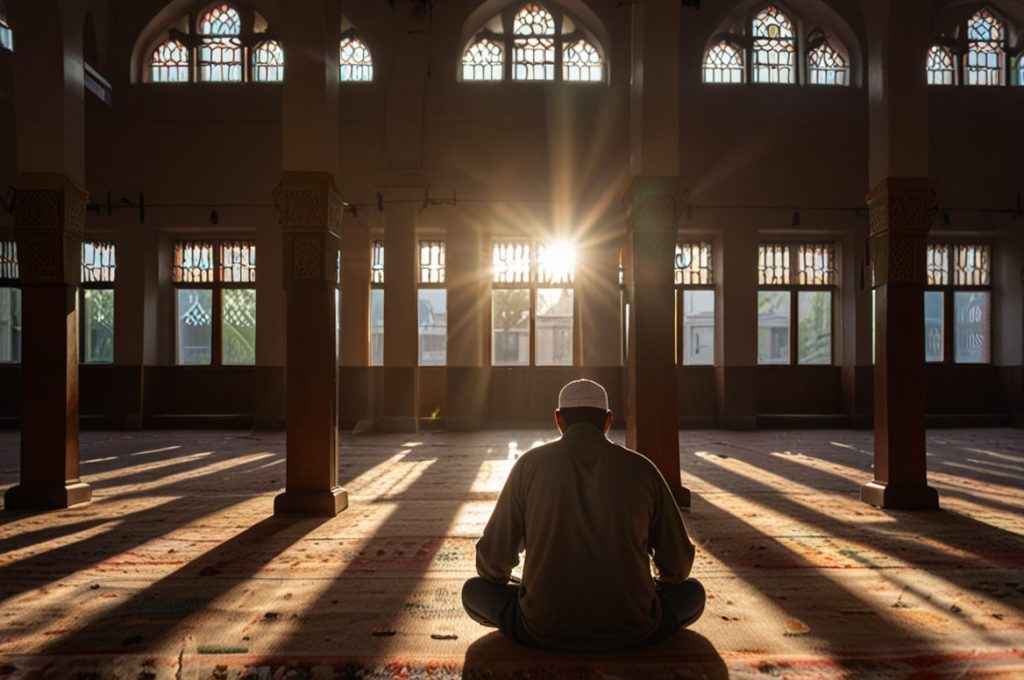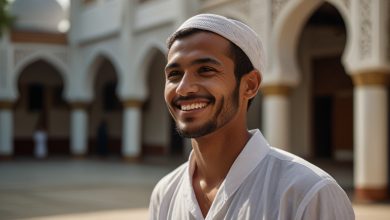Prayer in Islam (Salah): Purpose, Practice, and Profound Impact

Prayer in Islam, known as Salah or Salat, holds a central place in the life of every Muslim. It is much more than a ritual—it is a sacred connection between the believer and their Creator, a daily reminder of purpose, discipline, and spiritual devotion. For those seeking to understand Islamic worship, learning about the five daily prayers and their significance offers profound insight into the heart of the Muslim faith.
What is Salah?

Salah is one of the Five Pillars of Islam, making it a core obligation for Muslims around the world. It refers to the ritual prayer that is performed five times a day at specific times. Unlike general supplication (du’a), which can be made at any time and in any language, Salah is a structured form of worship that follows a prescribed sequence of actions and recitations in Arabic.
The Arabic word Salah means “connection” or “communication.” Indeed, prayer in Islam serves as a direct link between the believer and Allah (God), reinforcing awareness, gratitude, and submission to His will. It is both a physical and spiritual act that combines body, mind, and soul in worship.
Times and Names of the Five Daily Prayers

Muslims are required to perform five daily prayers, each at designated times throughout the day. These prayers serve as anchors, drawing the believer back to a state of mindfulness and spiritual alignment.
Here are the names and times of the five daily prayers:
- Fajr – Dawn (before sunrise)
A two-unit prayer performed in the early morning, symbolizing purity and new beginnings. - Dhuhr – Midday (after the sun passes its zenith)
A four-unit prayer that offers a moment of reflection amid the day’s busyness. - Asr – Afternoon (late afternoon)
Another four-unit prayer that reminds Muslims of their purpose before evening sets in. - Maghrib – Sunset
A three-unit prayer offered immediately after sunset, giving thanks for the day that has passed. - Isha – Night
A four-unit prayer performed after the sky has gone dark, offering peace and closure before rest.
These specific times ensure that prayer in Islam is evenly spaced throughout the day, cultivating a rhythm of remembrance and spiritual mindfulness.
How Muslims Perform Prayer

Understanding how Muslims pray involves both physical actions and specific recitations. Each Salah consists of a series of units (rak’ahs) that include the following elements:
- Intention (Niyyah): The prayer begins with a sincere intention to perform the act of worship solely for Allah.
- Standing (Qiyam): While standing, the worshiper recites verses from the Qur’an, including the opening chapter, Al-Fatiha.
- Bowing (Ruku): The believer bows with hands on knees, glorifying Allah’s greatness.
- Prostration (Sujood): With the forehead touching the ground, this is the most humble position, symbolizing complete submission to God.
- Sitting (Jalsa): Between prostrations, the worshiper sits briefly, often making supplications.
- Ending the Prayer (Tasleem): The prayer concludes with turning the head to the right and left while saying “As-salamu ‘alaykum wa rahmatullah,” spreading peace to those around.
Cleanliness is also a vital component of Salah. Muslims perform ablution (wudu) before praying—washing the hands, face, arms, and feet—to approach prayer in a state of physical and spiritual purity.
Prayers are typically performed facing the Kaaba in Mecca, the holiest site in Islam, and can be offered alone or in congregation, especially in mosques.
Spiritual and Communal Benefits of Salah

The importance of Salah goes beyond fulfilling a religious duty. It carries deep spiritual and emotional benefits:
1. Strengthening the Relationship with God
Prayer in Islam nurtures a direct bond with Allah. Through regular communication, Muslims find comfort, guidance, and a renewed sense of purpose.
2. Spiritual Discipline and Mindfulness
The fixed prayer times structure the day and train the soul in discipline, patience, and consistency. Each prayer is a moment to pause and realign one’s intentions.
3. Inner Peace and Mental Well-Being
The repetitive nature of Salah, especially the act of prostration, promotes tranquility and stress relief. Many Muslims report that prayer brings emotional clarity and calmness.
4. Communal Unity
Praying in congregation, especially during Friday prayers (Jumu’ah), fosters a sense of brotherhood and equality. Rich or poor, young or old—everyone stands shoulder to shoulder, united before God.
5. Moral and Ethical Grounding
Regular prayer reinforces values such as honesty, compassion, and humility. The Qur’an itself states:
“Indeed, prayer prohibits immorality and wrongdoing…” (Qur’an 29:45)
This ethical framework influences how Muslims conduct themselves in everyday life.
Conclusion
Prayer in Islam is more than a ritual—it’s a profound act of devotion that shapes a Muslim’s day, character, and worldview. From the pre-dawn stillness of Fajr to the quiet reflection of Isha, the five daily prayers serve as pillars of spiritual discipline, gratitude, and connection to God.
For Muslims, Salah is a daily reminder that life is not just about worldly concerns, but also about nurturing the soul and serving the Creator with sincerity. Whether you’re a student of religion, someone exploring faith, or simply curious about how Muslims pray, understanding Salah opens a window into the beauty, purpose, and unity that defines Islamic worship.




